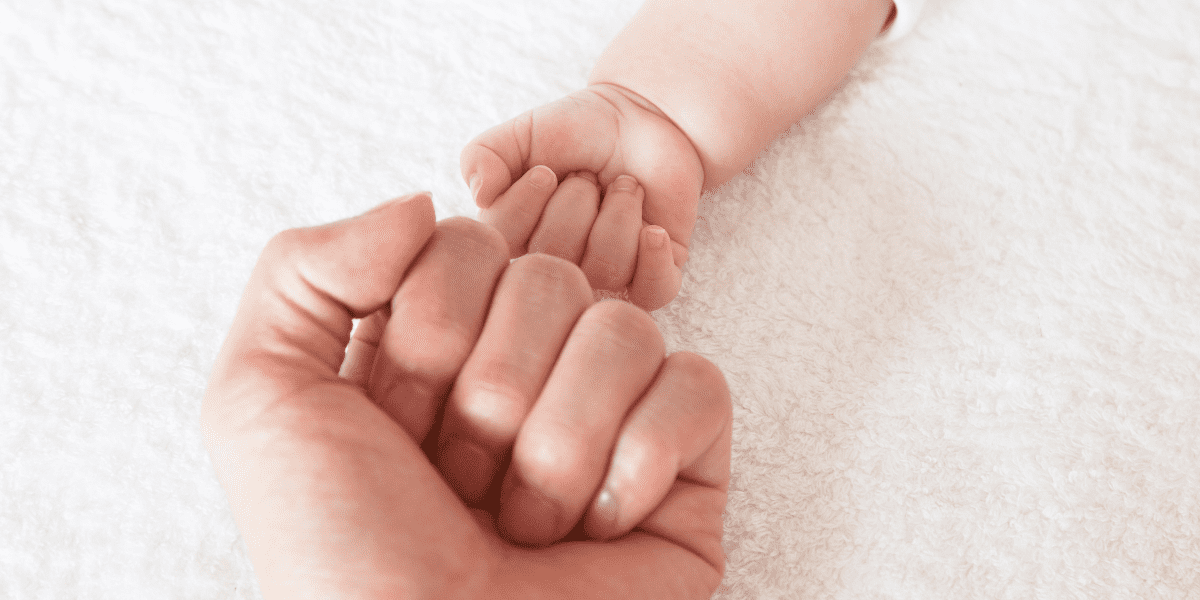The middle name of a person often becomes their preferred name, which can have a significant impact on one’s self-image. It’s no surprise that people spend so much time on Google looking for the right middle name!
The capacity to deepen family ties was one of the key reasons the middle name became popular in the first place. Why should you have to choose between honoring your mother and honoring your sister? How can you narrow down your options to just one person?!
All you have to do now is make sure the names flow well together! If you have numerous female figures in your family who are essential to you, giving your daughter a middle name allows you to commemorate more than one of them in her name.
Charlotte is a feminine given name, the female form of Charles. The meaning of Charlotte in French is “free man.” It has been in use since at least the 17th century and was common among English speakers during the 18th century. Charlotte’s popularity peaked in England around 1890 when it was one of the three most popular girls’ names. Below are some of the common middle names for Charlotte:
150 Middle Name Ideas For Charlotte
A
Adair
Adair means “son of the red-haired warrior” in Gaelic.
Adelle
Adelle means “noble” in Hebrew.
Adeline
Adeline is a French name that was derived from the Germanic word adal, meaning noble.
Agnes
Agnes is Latin for pure or chaste. Still, it also ultimately derives from Greek (agne), meaning virginity, named after the Christian Saint Agnes. The latter died early until marriage to avoid her persecutors’ lusts, where she later became venerated as a saint.
Alexandra
Alexandra originates in the Greek language with its literal translation being a defender of men, while Sasha comes from Alexander, which translates into man’s defender. Shura is a Russian variant of Alexandra.
Alexia
Alexia originates from the Greek name meaning defender of mankind.
Alicia
Alicia comes from Germanic origins, and it means noble in battle. In contrast, Alice came into use as a Latinized form of Old French Aliénor, which meant both bright and beautiful, strong in a will or resolved.
Amelia has been among the top five most popular baby girls’ names throughout history because its literal translation means hardworking industrious. It’s still a popular name today.
Amelie
Amelie originates from a French term, améliorer, which means to better or improve.
Angelica
Angelica originates in the Latin language, with its meaning being angelic.
Anne
Anne meant grace and was the French form of Anna, which came from Latin and Hebrew words meaning gracious or merciful.
Annabelle
Annabelle means noble, beautiful, and blessed.
Anneke
Anneke is a Dutch diminutive of Anna, which came from a Hebrew word meaning gracious or merciful.
Antoinette
Antoinette means “the way of life” or to give tribute.
Ashanti
Ashanti is one of the top five most popular baby names in the United States, and it means born on Tuesday in Swahili.
Arielle
Arielle is an American variant of the Hebrew Ariel, and its literal translation means lioness of God. At the same time, Ariana originates in the Persian language, with its meaning being nobility.
Athena
Athena means wisdom in Greek.
Audrey
Audrey was derived from the Old English word Ealdgyth which meant noblewoman.
Autumn means the season of fall, which is typically September, October, and November.
Avery- Avery means “elf ruler.”
Azalea
Azalea originated from the Greek word zalos, meaning flower. Still, it also refers to the plant commonly called azalea by English speakers and another genus of flowering shrubs known as the rhododendron. It is also a common variant of the name Hazel.
B
Barbara
Barbara means either “foreign woman,” or it can be traced back to the Greek word barbaros that meant both foreigner/stranger AND boorish/unpolished.
Beatrice
Beatrice originates in Germanic origins with its literal meaning being “clever one,” but it is also of Latin origin with its literal translation meaning bringing joy.
Bethany
Bethany means “house of figs” in Hebrew.
Bianca
Bianca means white in Italian and has been used as both feminine and masculine names throughout history. Bianca originates from Germanic origins, with its meaning being fair, bright, or blonde.
Blair
Blair is an Anglicized form of Gaelic place name Blár which means either blue or greenfield, while Blaire comes from the Old English word blonde, but it’s often associated with blonde hair today. Both are still popular today.
Bonnie
Bonnie is derived from the Scottish word bonny, meaning pretty.
Brittney
Brittney was derived from Brittany, which translated into small Britain, while Britny is considered to be one of many nicknames for Brittany.
Brittany
This English feminine form of the ancient Roman Britto stems from an Old French word meaning “the Britons.” It can also refer to one who comes from Britain or has some connection with it.
Bryce
Bryce is a Scottish surname and given name, which means “from Brittany.” Author Ian Whyte first used it for his novel The Boy from Hell (1997).

C
Caitlin
Caitlin is a feminine form of the Irish (and Scottish) masculine named Cáitilin, which means ‘little companion.’
Callie
Callie originates from the Greek language, with its literal translation being beautiful, while Kalli comes from the Greek word meaning beauty.
Caroline has Latin origins, and it meant “man.” It was popularized by 17th century German House of Hanover and became associated with their family in 1657.
Carrington
Carrington was originally taken from the English place name, which meant ‘estate of the free peasants.’
Celeste
Celeste is of Latin origin, and its literal translation means beam or ray of light.
Chloe is a Greek name with its literal translation meaning green shoot or young sprout. It’s also considered to be the feminine form of Nicholas in other regions.
Claire
Claire comes from the Latin word clarus, which means clear, bright, and famous, while Klaire was derived from the French language as an altered spelling of Claudine. Both names are still popular today.
Clarissa
Clarissa’s meanings are “most beautiful,” and a form of Claire or Clare meaning “bright.” It also means intelligent.
Crystal
Crystal is one way to spell the English variant for Kristal, which originated from Germanic origins with its meaning being ice.
D
Daisy
Daisy originated from the Old German language, tazige or dazisc, meaning’ gentle strength,’ while daisy itself means day’s eye because both petals and seeds are closest to the sun in the morning.
Dakota
Dakota is an English name, and it translates into the native American tribe of the same name.
Dalton
Dalton can be both a surname and a given name, which derives from an English place name meaning “town in the dales.”
Darcy
Darcy comes of French origin, with its literal translation being a dark one. Still, it was first used as a surname before becoming popularized by author Georgette Heyer who wrote the novel P&P.
Diana
Diana comes from the Latin language, with its literal translation being the goddess of hunting, moon, and nature. It is also considered one of many variants for Diane.
Are online birth classes worth it?

E
Easton
Easton is a middle name that’s been around since medieval times and means east town, making sense since it’s usually paired with another middle word like Charlotte.
Eleanor has its origins in Greek (Ελαιρεν) where it meant ‘shining upon man’; this was adopted by Geoffrey of Monmouth for his popular male character Elidurus.
Eliana
Eliana is a great middle name option. It means “my God is bountiful.”
Elizabeth
Elizabeth has Hebrew origins, and it means my God is an oath. The Queen of England popularized it in the 16th century, and ever since then, it has become one of the most famous names for girls throughout Europe.
Ellie
Ellie comes from an English word meaning beautiful or elfish, while Eliyahu originates from the Biblical name Elijah with its literal translation being Jah (God) is Lord.
Emma
Emma originated from Germanic origins, with its meaning being universal or entire. This feminine name was popularized by the character Jane Austen wrote in the novel P&P.
Emmy
Emmy comes from the Germanic language as a form of Emilie, which means industrious servant.
Emory
Emory means “industrious” in Latin origin; this name is also derived from a place (Old English).
Erin
Erin is a form of Irish given name Eibhlin which means ‘beautiful.’
Evelyn
Evelyn’s etymology has two hypotheses: either it comes from the Hebrew word חַוִּי meaning “live,” or that it derives from Eibhlín of the same meaning (the diminutive form).
Evie
A pet form of Evelyn, Evie may have French origins; its root is believed to mean ‘life,’ or another possible origin suggests it could come from ‘Eve.’
F
Faith
Faith is a name that can be used as both nouns and verbs, with its literal translation being ‘to trust.’ It has Hebrew origins.
Faye
Faye is derived from the Middle English word fae, which means fairy or magical being.
Felicia
Felicia has its origins in the Latin language, and it means happy, fortunate, or successful, while Felix comes from a Latin word meaning lucky, prosperous, or fruitful.
Felicity
Felicity has a Latin origin, with its literal translation being happiness, and 16th-century writer Sir Philip Sidney popularized it in his poem.
Fiona
Fiona originates from Latin and means fair, but this originally Scottish Gaelic word has been adopted into English. It is considered to be the feminine form of Fionn, which means white, fair, handsome.
Florence
Florence is derived from the Latin word meaning flourishing. The 14th-century poet Dante Alighieri popularized it in his poem Divina Commedia.
Flora
Flora comes from the Latin language, which means flower, blossom, or flourish. One of the mythological Roman goddesses of Springtime presided over plants, fertility, and vegetation.
Flossie
Flossie is a diminutive form of Florence of English origin. It was popularized by the 18th-century poet William Blake in his poem.
Frieda
Frieda has Germanic origins, and it means peaceful ruler. It was popularized as a feminine name by 19th-century writers Johann Ludwig Tieck and Friedrich de la Motte Fouqué for the female characters they created.
G
Georgia
Georgia has its origins in the Latin language, and it means farmer. It was first recorded in English-speaking colonies of America.
Gertrude
Gertrude is a German and Dutch feminine form of the name Gerhard (meaning “spear strong”). It may also be related to the English word girdle, as in a belt with which it encircled one’s waist.’
Gia
Gia is an alternative spelling of the name Gaia which means earth in Greek. Jah has Hebrew origins, and it means ‘to be’ or ‘God’ while being used for a boy.
Ginger
Ginger originally had English origins, but several languages adopted this word, with its literal meaning being yellow hair.
Gracie
Gracie originated from the Greek language meaning ‘grace’ while Gracye stems from the French word grâce, which means grace or mercy.
The One Essential Baby Item I Didn’t Think I Needed

H
Hailey
Hailey has an English origin, and it means hay meadow. Haley is also an alternative spelling of that name. 19th-century writer Washington Irving popularized it in the book The Legend of Sleepy Hollow, where he used Hayley as a male character’s surname.
Hannah
Hannah comes of Hebrew origin. It means ‘favor’ or ‘grace.’ 17th-century Puritan preacher Thomas Shepard popularized it in his book Spiritual Canaan who used this name for the main female character.
Harper
Harper is derived from the Anglo Saxon word hærep meaning ‘minstrel’ or harp player. A character in the novel P&P popularized this English surname.
Hazel has its roots in the Old English language, where it meant either an eye condition also called a tree species or pale yellow color.
Helena
Helena has Greek origin, and it means ‘light’ or ‘torch’. It was popularized by Roman emperor Constantine who named his daughter in honor of the early Christian Saint Helen.
Holly
Holly comes from the English word holen, which means tree with red berries, while Holle is also an alternative spelling of that name.
Hope
Hope originated from Latin origin. Its literal translation is to cherish because of the belief that you would inherit your parents’ good qualities, which gives them hope for their future generations.
I
Isla
Isla is a form of Elizabeth or Elisabeth, which means ‘My God is abundance’ in the Hebrew language. It was popularized by James Matthew Barrie (author and playwright) when writing a name for his female character in the novel P&P.
Ivy
Ivy has its origins either in Greek mythology via Hyginus’s tale about Ideas; it could also have Hebrew roots meaning “tree.”
J
Jade
Jade is derived from the French word Jade meaning ‘stone,’ which was initially used for an ornamental stone. It can also be taken as a form of Jane/Jean, which means ‘he (God) has favored me’ in the Hebrew language.
Jessie
Jessie is derived from the Hebrew word Yesod meaning ‘foundation.’ This name was popularized by Robert Burns’ poem “Jessie, the Flower of Yarrow,” where a girl’s name is beautiful but poor.
Jo
Jo is a short form of Josephine or Josefina, which means ‘God will add’ in Hebrew.
Jocelyn’s etymology can be traced to Germanic and French origins; the former gives rise to Jochel, while the latter gives rise to Jocelinus, Josselin. The name has been in use in England since the 13th century.
Josie
Josie is another name of Josephine, or it could be rooted in Greek words meaning “the Lord heals.”
Joy
Joy is derived from the Middle English word Joye or Old French word Joie, which means ‘to rejoice.’ It was first used as a given name in the English-speaking world during the 16th century.
June
June is derived from the Latin word Junius meaning ‘the sixth month of the year.’ It can also have its roots in Old English, where it means ‘the goddess Juno’s month; or the sixth month of the year (after March).’
K
Kate
Kate is derived from Katherine, the Greek form of a name used by Saint Katherine, who had been martyred at Alexandria in 307.
Kira
Kira is derived from the Japanese word meaning “shine.”
L
Larissa
Larissa is derived from the Greek word laris, meaning ‘dew,’ which references the city’s name in Greece.
Lila / Lyla
Both these variants of this Persian word mean night but are spelled differently due to different transliteration rules for writing Persian into English.
Lilith
Lilith originates as an ancient Hebrew female demon, and her name means ‘screech owl’; she has also appeared as a character in John Milton’s Paradise Lost (1667).
Louise
Louise is derived from Ludwig, which means ‘famous warrior’ in Germanic. It was first used as a given name by French novelist Madame de Stael for the fictional character Louise d’Epin a great French actress, popularized.
The best FREE online birth class
M
Mabel
Mabel is derived from the Latin word amabilis, meaning ‘lovable.’ This name was first used as a given name in the English-speaking world during the 19th century.
Maddie
Maddie is derived from Madeline, which means ‘woman from Magdala’ in the Hebrew language.
Mae
Mae is derived from either Mary or Maria, which means ‘bitter’ in Hebrew. It was first used as a given name by American writer John Myers O’Hara for Mae Feather’s character in Butterfield Eight (1935).
Maggie
Maggie has its etymology rooted in the Greek word margarites meaning ‘pearl.’
Mai
Mai is derived from the Japanese word for ‘blessed child’ or ‘beautiful.’
Mallory
Mallory may mean ‘unfortunate,’ or it can be taken to derive from Malachy, which is believed to come from Scottish Gaelic maol Chaluim, meaning ‘devotee of St Columba.’
Mandy
Mandy is derived from the name Amanda or Amelia. It was originally used as a nickname for Amandine and Emmeline, which means ‘lovable’ or ‘much loved.’
Mara
Mara, is derived from the Hebrew word mar meaning ‘bitter.’
Margot
Margot has its roots in Germanic origins and its pearl. This English word has been used for both given and family names.
Martha
Martha is derived from the Aramaic word Marta, which means ‘lady.’ It was used as a given name by Saint Martha of Bethany in Luke’s Gospel (Lk. 24:13).
Mary
Mary originates from the Hebrew language word Miryam meaning “wished-for child.” The literal translation being ‘drop,’ which eventually evolved into the English word ‘miracle.’
May/Mae
Mae is derived from either name, and it means ‘bitter’ in the Hebrew language. It can also be connected to May, which comes from Latin mensis, meaning month, as it blossoms in May.
Maya
Maya is derived from the Sanskrit word māyā, which means ‘illusion’ or ‘magic.’
Maxine
Maxine is derived either from the Latin name Maximilla or linked to the Hebrew female first name Maaxiym meaning ‘greatest.’
Melanie
Melanie originated as a Greek derivative of ‘μελαινα’ which means dark, dull brown, but this variant form Melaine emerged after the Norman invasion in England. It also became famous via fictional character Charlotte Brontë’s novel Villette where she uses her full name being “Mélanie” at one point.
Mia
Mia is derived from the Italian word meaning ‘mine’ or ‘my,’ and has also become a short form for Maria.
Mila is derived from the Slavic name Miroslava which means ‘peace.’ It has become a very popular name in Europe and America too; it is derived from the Slavic word ‘mir’ meaning ‘peace.’
Mildred
Mildred is derived from the Middle English name Maudilde which means ‘strength in battle.’ It was first used as a given name by English author Marie Corelli for her novel A Romance of Two Worlds (1886).
Millicent
Millicent is derived either from the Latin name Melania or it could be linked to the Greek word μηλια which means ‘bee.’
Millie
Millie is derived from the Greek name Melania, and it means ‘of a mill.’
Mina
Mina is derived from the Latin word which means ‘mine’ or ‘my.’ This name is also used as a variant of Wilhelmina.
Mira
Mira is derived from the Latin word which means ‘wonderful.’
Miranda
Miranda is a Latin female middle name with its meaning being either wonderful or admirable. William Shakespeare first recorded it in his play The Tempest (1611).
Molly
Molly is a pet form of Mary, which means “obstinacy” in Hebrew.

N
Nancy
Nancy can be traced back to its original Latin meaning ‘grace’ and was first used as a given name among English speakers during the 17th century.
Naomi
Naomi is derived from the Hebrew word ‘na’omi’, which means ‘pleasantness’ or ‘my delight,’ and it appears in the Old Testament as a name that belongs to both male and female characters.
Netta
Netta is derived either from the Latin word neta, meaning “queen,” or the Greek mythological name Nerthus which means “widow.”
Learn Exactly How to Breastfeed with this FREE CLASS
O
Olivia is derived from the Latin word oliva, meaning ‘olive,’ and was first used as a given name by William Shakespeare for a character in his comedy Twelfth Night (1602).
Ophelia
Ophelia is a Greek female name with its meaning being ‘help.’ It appears in William Shakespeare’s play Hamlet (1603) and is also the name of a character from Jean-Baptiste Racine’s tragedy Laërte (1777).
P
Pearl
Pearl is derived from the Latin word Perla meaning ‘jewel.’ Its English form originally referred to the jewel-like drops of silver or gold in medieval art and later became popular as a given name for girls born around Christmas time.
Phoebe
Phoebe comes either from Greek mythology where it stems from φοιβη meaning’ bright, pure’ or it could be linked to Hebrew language פאוּבה (meaning ‘darkness’).
R
Raven
Raven originates as an English given name with its roots coming from Scandinavian languages. Its original meaning is derived from the Old English word hræfn, which means ‘raven.’
Renee
Renée has French origins, and it derives from renaître, which means ‘to be reborn.’ It also could come from an Old German word ren(n)en that meant ‘adviser.’
Rosemary
Rosemary is derived from Latin and Greek words meaning “dew of the sea.” It has been used as a given name for centuries, and it can also be traced back to Aramaic (רזים), which means ‘mountain of spices.’
Ruth
Ruth originates as a Hebrew name with its meaning being ‘companion, friend,’ and it appears in the Bible.
S
Sarah
Sarah’s meanings are “princess” or “noble lady.” In Hebrew, this is pronounced ‘shera.’
Selena
Selena has Greek origins, and its meaning comes from the moon goddess of the same name who rules overnight magic, fertility, love, and music.
Serena
Serena is derived from the Italian word Serena meaning ‘calm, peaceful,’ and was used as a given name for girls in 15th century Italy.
Serene
Serene is derived from the Latin word serenus, which means ‘calm,’ and was first used as a given name in 19th century England.
Shannon
Shannon comes from an Irish surname and originally meant either “from the west” or “little wise one.”
Skye
Skye is derived either from the English word sky, which means ‘cloud,’ or linked to the Gaelic language.
Sloane
Sloane originated as an Irish surname and was first used as a given name in 19th century England, but some say this might not have been its original meaning.
Stella
Stella is derived from the Latin word Stella which means ‘star,’ and it was first used as a name in English-speaking countries during the 19th century.
Sue
Sue has its origins either way back to an old Germanic word meaning ‘wealth’ or another one coming from a Celtic language with its meanings being spear of destiny.
The Ultimate Secret Of BREASTFEEDING
T
Taylor
Taylor comes from an English occupational surname meaning “tailor” and became a popular name for both genders in the United States during the early 19th century.
Teresa
Teresa originates with its meanings being ‘harvester’ or ‘butcher’ and it can be traced back to Hebrew name תרצה (Tarshi), meaning ‘to harvest.’
Tessa
Tessa derives either as a diminutive of Theresa, Greek name θερα (meaning harvest), or it could be linked to Hebrew, which means “bird.”
Tilly
Tilly originates as an English nickname or diminutive of Matilda, and its meaning comes from Old German words that mean “mighty in battle.”
Trudy
Trudy is derived from a word for ‘beloved’ in Greek, which has been used as a given name by German speakers since the 19th century.

V
Valerie
Valerie is derived either directly from the Latin word valere, which means ‘to be strong’ or via the French variant of Valérie. It has been used as a family name too.
Vanessa
Vanessa’s etymology can be traced back to the Latin name ‘butterfly.’ English speakers took this up in the early 19th century after Jonathan Swift’s use in his poem Cadenus and Vanessa.
Victoria
Victoria is derived from the Latin word victoria, which means “victory” and was first used as a feminine name in the 16th century. It was also the title of a 19th century Saint who inspired many namesakes.
Violet
Violet comes either way back to the Latin word viola, meaning ‘violet’ or German.
W
Wendy
Wendy is a pet form of the English name Gwendolyn, which itself derives from Welsh elements meaning “white ring” or Gwen meaning ‘fair’ combined with dwyn for ‘ring.’
Wilhelmina
Wilhelmina originates with its roots coming from Old German words that mean will, desire, determination, and protection.
Winnie
Winnie is derived from an Old English word win(n), which means ‘friend,’ and was first used as a given name during 19th century England.
Wren
Wren is derived either as a diminutive of the Irish name Wayne meaning “little king,” or could be linked to the Welsh word wren, which means ‘king.’
X
Xenia
Xenia has its origins in Greek names with meanings such as “friendly,” and it was first used as a given name by English speakers in the 19th century.
Nursery Furniture You Can’t Live Without
Y
Yolanda
Yolanda has Greek origins where it stems from the word ‘cholos’ meaning ‘yellow.’ It can also be linked to the Italian element yolo, which means “I will,” or it could come from ancient Hebrew (meaning ‘shining one’)
Z
Zoe
Zoe’s origins come from the ancient word zōē which signified life in its most concrete sense: mere existence; it was probably related to zoé, “animal life, lifetime.”
Final Thoughts
There you have it, a complete list of middle names for Charlotte with their meanings.






